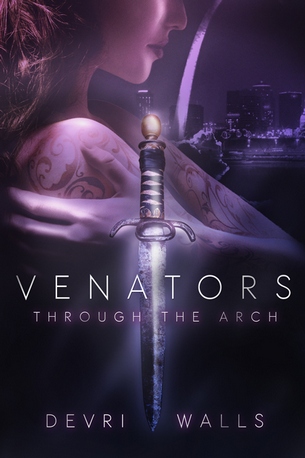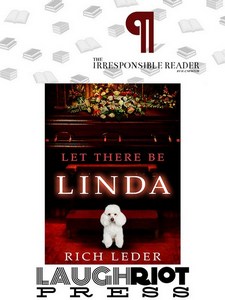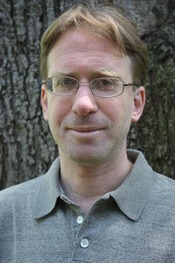| Bonus technical question: [I don’t normally do this, but I figured it might help readers] What’s that mark over the “s” in Waray’s dialogue? How should readers pronounce that (even in just their heads)? |
|
You’re the first to ask! The mark you’re referring to is a diacritic that goes by the name of caron(ˇ). My original intention was to use an “s” with a line below it, but there arose issues with rendering it on certain devices and in certain file types. All’s well, though, because its replacement (š) serves as the official romanization of the Persian letter Shin, which is pronounced “sh”. Relevant to Sassanian Iran, the second King of Kings to rule the empire was Shapur, which is sometimes written Šapur. In Waray’s case it’s pronounced “sho-“. I figured readers would at the very least realize she pronounces it differently due to the diacritic. |
|
| So, you’re on the verge of publishing a book funded by Kickstarter — looking back on it, how was that process? Would you/are you going to do it again? What did you learn from that? |
|
In a word: stressful. It was stressful as all get out. What’s more, I went through the process twice for the same book (about a year apart). The goal set for my initial campaign was a bit too ambitious, and I adjusted accordingly the second time around.
Running a Kickstarter is also very illuminating, because much of what goes on behind the scenes isn’t someone a backer would worry about. It isn’t until you’re in the thick of it that you come to appreciate the work that goes into a campaign (one that intends to deliver anyway). The logistics of backer rewards, trying to reconcile backer rewards with the cost of producing them and what you’re getting from pledges—it’s no small task. You send out many, many e-mails. You get in touch with folks for prospective rewards, for promotion, for research, for advice, for shipping, for packaging, for taxes, for—well, you get the idea. Again, it’s stressful, and so much more than simply throwing some reward tiers together.
While I don’t currently have any plans to do it again, I’d consider Kickstarter for future projects. It’s a powerful platform, and I’d be a fool not to at least consider.
Besides what I mentioned above with respect to what goes down behind the scenes, I’d say it taught me who I can depend on. And that came with some surprises. I have an greater appreciation for those who went out of their way to help on many fronts. These kind souls showed a genuine interest in championing something that’s dear to my heart. Something I’ve toiled over for years. That is no small gesture, and if it were up to me (and not my notoriously unreliable memory), I’d never forget any of it. |
|
| Sassanian Iran — I’m sure you’ve been asked before, but I probably won’t be the last: where did you get this idea? Had you previously researched the time/culture — or was this something you had to do after coming up with the idea. |
|
This is where that tenuous memory comes into play. I can give you a general idea, though. Before settling into Sassanian Iran as a setting, I had an idea of the character and her travels. From there, I set off in search of, well, somewhere that stood out. I came across Sassanian Iran in my research into the history of the Middle East—when or where exactly I can’t be certain. But something there led me to the national epic of Iran, the Shahnameh (and later the Hamzanama).
I can tell you with conviction that the former had an undeniable impact on the course of my research. Like any good epic, it delineated the history of Iran, and did so with flair and magic and adventure. Something in there nudged me toward Sassanian Iran. When I learned of its impact on the history of the world, and of the unsung nature of that impact, I delved deeper. In doing so, I found the perfect setting for Ashtadukht. The legends, the culture, the lands, the history: it all fit.
|
|
| What’s the one (or two) book/movie/show in the last 5 years that made you say, “I wish I’d written that.”? |
|
Breaking Bad ended in 2013, so that counts, yeah? Naturally, I’d like to see success on that scale. More than that, it’s a drama that I sincerely doubt I’ll ever live up to. The narrative is damn brilliant, and riddled with nuances. It’s powerful, it speaks to people, and it is a shining example that a TV series can be art as much as any movie or book.
Figure I should include a book, since I’m an author and all. In this case, I’ll use Guy Gavriel Kay’s River of Stars (without really going through everything I’ve read). He’s a luminary for a reason, one who wields both history and prose better than I ever could. He’s demonstrated as much time and again, but River of Stars is especially beautiful. There’s an earthiness to the characters, a coziness that describes them as real people. They don’t feel the slightest bit fictitious (I realize some are fantasy depictions of real-world figures). He’s a master of his craft. Certainly of historical fantasy.
|
|
| I’ve often heard that writers (or artists in general) will forget hundreds of positive reviews but always remember the negative — what’s the worst thing that someone’s said about one of your books, and has it altered your approach to future books? |
|
I’m not sure I could pick out the worst thing. I’ve probably tried to bury it for my own sake. But when I first started writing people would often comment negatively on my prose—purple prose, namely. It wasn’t entirely unfounded. Well, I’ve since learned from that, and evolved my writing to work in some of the more inventive words here and there while generally being more relaxed for the most part.
I did have readers sometimes find issues with characters that must have been influenced by their own issues with the world. Too busy trying to find political or social commentary that wasn’t there. I try to avoid that kind of thing. |
|
| With your next book on the verge of release, what comes next? Are you neck deep in a draft, or are you waiting for A Star-Reckoner’s Lot to be launched before diving in? |
|
I’m hunkered down with A Star-Reckoner’s Lot, and doing my utmost to make its release a success. Too focused on keeping the book afloat and securing its future to really concentrate on what’s next. Some authors can manage both; I am not one of them. And I don’t want to look back and think that I should have given A Star-Reckoner’s Lot my undivided attention. In most cases, you get one launch. One. If I’m going to screw it up, I don’t want it to be because I wasn’t giving it my all.
Thank you very much for having me, H. C. You brought up some topics I haven’t had the pleasure of discussing, and I’m grateful for the opportunity. May your beard always be full. |
|
Thanks for your time and the answers, Darrel. I hope the launch goes well.
|





